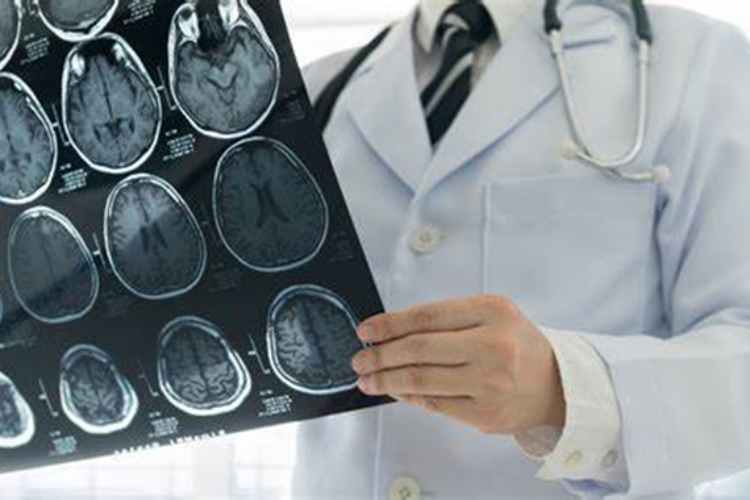The human brain and its capacity are an enigma. Although this organ is crucial for performing vital functions, it’s still a mystery to scientists. However, what is known so far is that the brain, as well as other organs, can suffer from different disorders and conditions.
You can find more interesting facts about the human brain on the following page:
https://www.healthline.com/health/fun-facts-about-the-brain
The brain and the entire nervous system are a rather complex structure. A branch of medicine called neurology studies this system, so its practitioners (neurologists) examine neurological patients, perform diagnostic procedures, and determine the treatment.
If you’ve ever felt a sudden migraine, fainting, or any symptom related to neural issues, your physician will most likely refer you to a neurology specialist. The examination is short yet detailed, enough for an expert to establish the history and determine the further course of therapy depending on why you came to see them.
Headaches
Headache is something that people face almost every day. It doesn’t necessarily indicate health problems. Still, there are situations when a specialist has to investigate this symptom in more detail because it can be a sign of neurological problems. It requires attention if you suffer nausea, speech or vision issues, or confusion besides a headache.
Migraines are benign headaches but can also be a sign it’s time to see a neurologist. Don’t waste your time if this headache lasts longer than 72 hours. You can feel the pain and pressure in any part of your head at any time. But pay special attention if the pain occurs suddenly, is of great intensity, and repeats often.
Head Injuries
Head trauma can also trigger a need for a neurological examination. Not every blow is life-threatening. It doesn’t necessarily mean your brain and nervous system are hurt. Still, it’s always better to be safe than sorry after a head trauma.
A neurologist check-up after the injury is often necessary to determine its extent and detect possible internal bleeding. On this source, learn more about the brain bleed after the injury.
It often happens that the symptoms of some neurological problems don’t appear right after a head injury. For example, you suffered a concussion after falling from a bike. There are no visible injuries, but after a month or two, you might experience short-term memory issues and confusion. Months can pass until you link these two and turn to a neurologist for help.
Sudden Vertigo
If you’ve ever felt like you’re losing ground, you’ve most likely experienced vertigo. Fainting can be caused by several things and is most often benign. Like the headache, it’s not a problem but a symptom. In most cases, it goes away spontaneously after rest and doesn’t recur.
However, if you experience repeated fainting followed by nausea, ear ringing, tingling, or loss of vision or hearing, these might indicate more serious neurological diseases. To make the most accurate diagnosis, neurologists perform a detailed examination of your head and brain. Depending on the patient’s condition and following symptoms, further diagnostics, such as ultrasound imaging, MRI, EEG, etc., may be necessary.
In case fainting is a symptom of a degenerative or chronic neurological disease, the neurologist prescribes therapy, usually sedatives and anti-nausea drugs. These should enable better work of the center for balance and blood circulation in the brain. Surgery might be necessary in some cases, depending on the diagnosed disease and its severity.
Inexplicably Shaking
Tremor or uncontrollable shaking of a certain body part is most often associated with aging and weakening of the nervous system or stress. But this symptom indeed has little to do with the patient’s age and exposure to stress. Genetics plays a critical role in tremor occurrence, so if your parent(s) has it, you might experience it sooner or later.
Some people get used to living with this condition as soon as it doesn’t interfere with their daily life. But if tremor attacks repeat from time to time and prevent you from doing daily stuff (you drop things due to shaking hands or have movement issues), this condition requires neuro rehab and medical supervision. The neurologist performs all necessary diagnostics and determines the course of treatment.
Depending on the symptoms, tremor frequency, and the patient’s genetics, these specialists will run ultrasound, MRI examinations, and neck blood vessel imaging. These tests will indicate any blood flow issues to and from your brain. If doctors suspect a specific condition, they’ll determine the therapy to ease your trouble and help you to go through the day.
Neurological diseases often have insidious and hidden symptoms, so without timely diagnosis and treatment, they can leave significant consequences. Whenever you suspect these problems, you should see a neurologist. Even if everything is fine, it doesn’t hurt to check how your brain and nervous system are doing.

